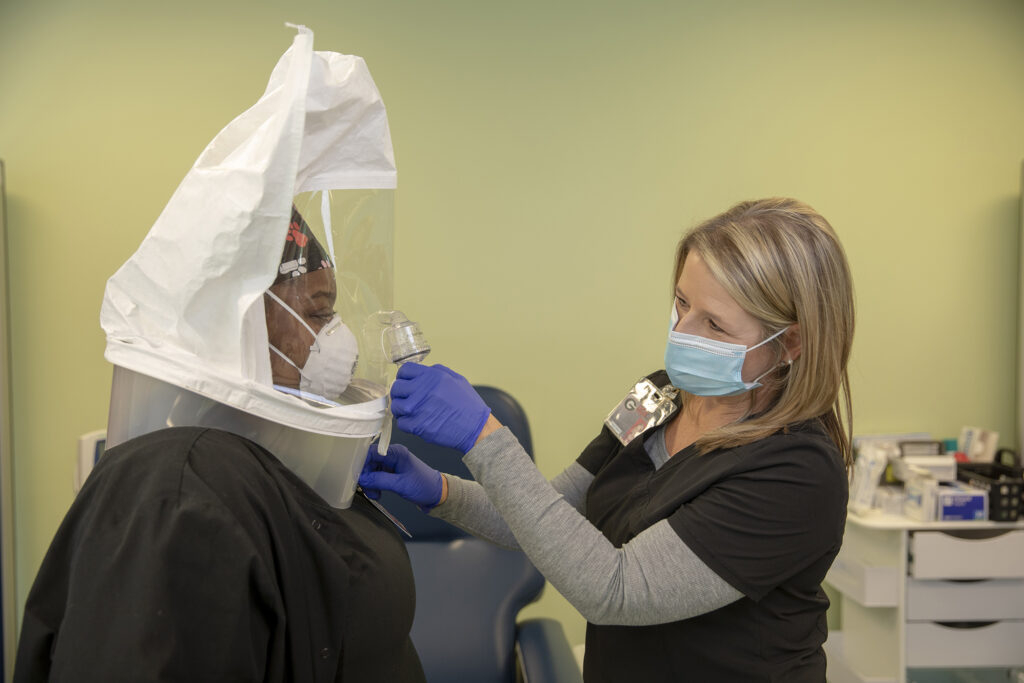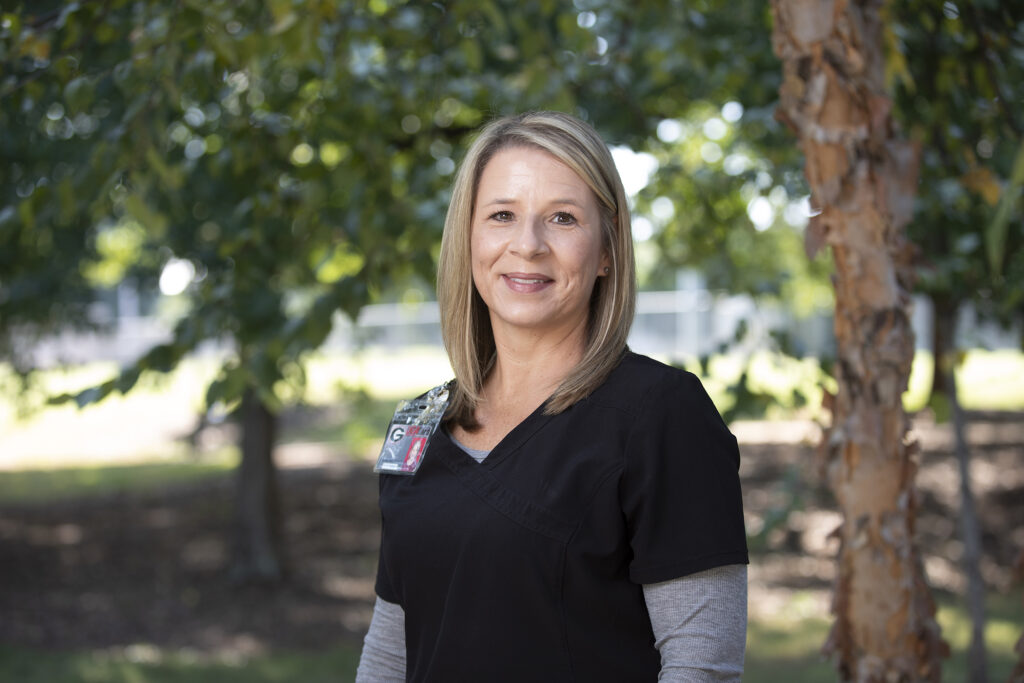Since the pandemic began, Jenney Roundtree has added a new, unofficial job description: COVID Confidante.

“I like being able to help people figure things out and being that voice of reason,” said Roundtree. She might recommend a test, encourage them to use the university’s DawgCheck, help them interpret CDC guidelines or tell them that their symptoms sound like seasonal allergies. “Some people do get kind of panicky, so part of it is just being there and being a calming force for them.”
Another big, new part of her job description during the last seven months has been masking up 93 officers in the UGA police department as well as other front-line workers. These workers need extra protection—and getting them fitted properly in N95 masks involves more than just handing them a mask and sending them on their way.

Jenney Roundtree, right, an occupational health nurse demonstrates an N95 mask fitting with Tejal Hill, a phlebotomist in the Clinical and Translational Research Unit. (Photo by Peter Frey/UGA)
“It’s different than a regular hospital mask. We’re trying to keep organisms from entering their body so they’re adequately protected,” said Roundtree. Every employee required to wear an N95 respirator goes through a comprehensive “fit test.” There are several different models of N95 respirators, explained Roundtree, and the purpose of the fit test is to ensure employees are wearing the appropriate mask for their facial structure.
“It’s not a one size fits all. The fit test process involves the wearer donning a mask. The fit tester places a fit test hood over their head and sprays a fit test solution into the hood while guiding the wearer through various breathing exercises,” she said. “If the wearer can taste the fit test solution at any time the mask is readjusted or a different mask is tried. The process repeats until the appropriate mask is found.”
In pre-pandemic times, Roundtree’s focus was keeping UGA researchers safe through the Research Occupational Health and Safety Program. This year, there’s a bigger push to arrange flu shots for those in the program. Since flu and COVID symptoms are similar, shots help with diagnoses if someone’s having symptoms. “And even though you can still get the flu [after getting the shot], it’s at a lesser level,” said Roundtree. “And that also takes a burden off the health care system.”
Jenney Roundtree is an occupational health nurse in the Office of Research Integrity & Safety Support Services. (Photo by Peter Frey/UGA)
Even though her job involves convincing people to get shots and wear masks — generally not the most enjoyable thing on people’s To Do lists — Roundtree appreciates that everyone has been cooperative. “People are really trying to be responsible and want to do the right thing,” said Roundtree. “When people call in and we tell them, ‘You’re going to have to quarantine for the two weeks,’ they’ve done a good job of it. Even though it’s not the most ideal situation, they’re respecting that and realizing that this is what we’ve got to do to keep everybody else safe.”
Roundtree said she doesn’t worry about getting sick herself. “In nursing we’re trained to expect everybody’s got something, so you’re prepared,” said Roundtree, whose husband, Michael, is also in health care. Pandemic or no, it’s all in a day’s work. “Nursing is what I do. Taking care of people just comes naturally for me.”
